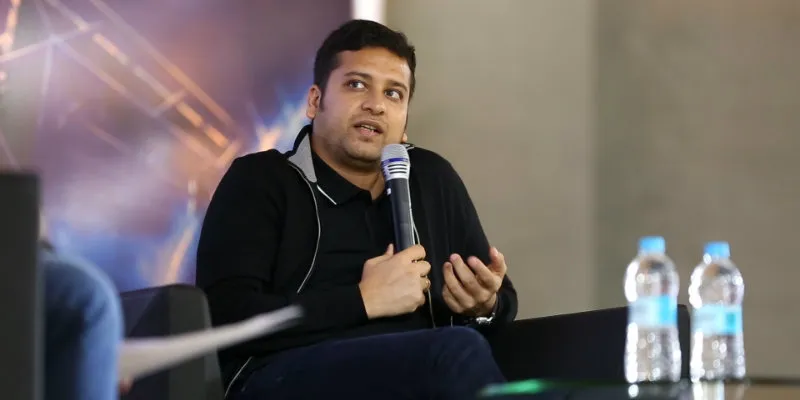Binny Bansal's exit from Flipkart evokes mixed reactions from the Indian startup ecosystem
Indian entrepreneurs express shock and dismay at Binny Bansal’s sudden resignation from his position as Chairman and Group CEO of Flipkart, while investors believe the event will not hamper the growth of the startup ecosystem, but say it highlights need for greater transparency and disclosure among startups.
For over a decade, Flipkart has been the flag bearer for the Indian startup ecosystem. Sachin Bansal and Binny Bansal – the founder duo of the ecommerce giant – have inspired scores of entrepreneurs, beating all odds to give rise to the startup revolution in India.
Indeed, Sachin Bansal and Binny Bansal – not related – became the poster boys of new-age entrepreneurship in India. Few would have thought the two icons would have to leave the very company they founded and scaled for over a decade.
On Tuesday, Co-founder Binny Bansal stepped down as the Group CEO and Chairman of Flipkart following an investigation into allegations of ‘personal misconduct’. Binny’s departure comes just months after Sachin was reportedly forced to exit the company after its sale to Walmart earlier in the year.
Many entrepreneurs expressed shock and dismay at the news of Binny’s resignation, but high-profile investors agreed the event will not impact the growth story of the Indian startup ecosystem.
"Startups will continue to be a big part of India's growth no matter what happens to big founders or CEOs," says Mohandas Pai, MD of Aarin Capital.

"The Indian ecosystem is continuing to grow, and you can see that it’s one of the fastest growing in the world. It is about building great companies and building the economy, nothing stops the dream of entrepreneurship," says Raju Indukuri, founder of FalconX, a US-based incubator and angel investor.
Also read: What happens to Flipkart leadership after co-founder Binny Bansal's abrupt resignation?
Yet, several entrepreneurs said the abrupt exit of the Bansals will dampen the entrepreneurial spirit in the country and dull the euphoria surrounding the $16 billion stake sale of Flipkart to the US-based retail giant Walmart.
“Really tragic to see both Sachin and Binny exit. Flipkart inspired the entrepreneur in all of us,” said one entrepreneur.
In May, Sachin was allegedly forced to leave the company because of a disagreement over what his role would be after Walmart’s acquisition of 77 percent stake in Flipkart.
“This sudden exit definitely makes one question what we celebrate as success in the Indian startup world. Is raising capital or getting an exit really a success? Such incidents will reset the Indian startup ecosystem and question one to think about the success parameters for a startup,” said one early-stage investor.
Accelerated leadership change at Flipkart
Shortly after the Walmart deal, Binny, who stayed on as the Group CEO and Chairman, had said Flipkart was still in its early days and that more opportunities lay ahead, including in the financial services space with PhonePe, which Flipkart had acquired in 2016.
“I think the next 30 years will be more exciting. Till now, we were building a foundation on tech, team, infrastructure, a large customer base, and a trusted brand. Those are our assets. As tech becomes more progressive in the next 10 years, there will be more opportunities and more categories with more penetration,” Binny had said at a rare public appearance in July at the 5th edition of LetsIgnite, an angel investor-focused conference.

And yet, barely four months later, Walmart announced Binny’s resignation would be effective immediately. To be clear, the US retail giant also said Binny had been considering a transition for some time now. The leadership change at Flipkart, however, was accelerated by recent events surrounding the probe and allegations, which were uncorroborated after a thorough investigation completed by an independent law firm.
“The allegations left me stunned and I strongly deny them. The investigation, however, did bring to light lapses in judgment, particularly a lack of transparency, related to how I responded to the situation,” Binny wrote in a carefully worded letter to Flipkart employees, using similar language as that in Walmart's press statement.
“Alas, another one bites the dust! His (Binny’s) sudden resignation is not surprising… what a sad day for founders and the Indian startup ecosystem in general. Why do we always end up this way? Too much foreign funding? Money?” lamented another entrepreneur on social media.
Binny, however, categorically denied the allegations and said he decided it was best to step down on concerns the recent events would become a distraction for the company and the team.
“As an entrepreneur, I am sure this is the toughest decision for him to make. It's like losing someone you nurture. Despite putting in so much effort and the many sleepless nights to see it grow... now you are not a part of it anymore,” one entrepreneur said. “He knows what suits best under this situation. He is a role model for many aspiring entrepreneurs,” he added.
Also read: Flipkart top brass says all is well after founder Binny Bansal's exit
More success stories to come?
Indeed, Sachin and Binny’s success and the evolution of Flipkart shaped the narrative of the Indian startup ecosystem and cemented India’s standing as a major market of interest for investors. The co-founders were known for always working in unison, with Sachin regarded as the visionary among the two, while Binny was seen as the “operations guy”.
Theirs was a story of two twenty-something boys from Chandigarh who, over a decade, scripted one of the biggest success stories of the Indian startup ecosystem. The two forced global players to pay attention to India – in particular, the immense growth opportunities and possibilities in the market.
Apart from their common Chandigarh background and surname, the two have a lot more in common. Both also studied at IIT-Delhi and graduated in 2005, following which they worked at Amazon. And both built Flipkart from a bookstore to a large online retailer that competes with the likes of retail giants like Amazon.
But, even as many entrepreneurs said they were disheartened at the outcome for Sachin and Binny, investors believe there are many more success stories to come.
"Any business is driven by the fundamental beliefs of the founders, which is to set an example with leadership along with all the business skills. There have been several startups that have become big businesses over the decade, there is no reason why there won't be many more to come," said Venk Krishnan, founder of NuVentures.
Also read: Here's Binny Bansal's last letter to Flipkart employees on his resignation
The need for transparency
And yet, investors agreed there were learnings from Tuesday's event for the startup world, mainly around ensuring greater transparency and disclosure in operations.
“Founders will be more conscious for sure moving forward. But whatever, we say now will mostly mean reading into things. However, I strongly believe that it is a disclosure issue, that why such a thing wasn’t brought to the Board’s notice,” said one investor who asked not to be named.
The investor, at the same time, also believes the timeline between reporting and investigating matters will reduce drastically.
Another early-stage investor who asked not to be named told YourStory,
“The main problem with Binny’s exit seems to be around transparency and US companies tend to be quite particular about that. Hence, the impetus lies on startups to report to their boards with transparency and display further caution."
"Even in our portfolio, we push potential investment companies to report their RoC, and clean up these nuances before the investment,” he said, adding that the real need is to create processes that ensure redressals and investigations are started immediately after a case comes to the management’s notice.







